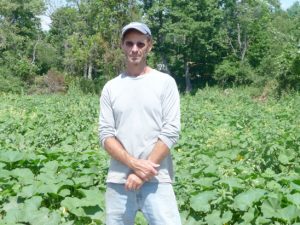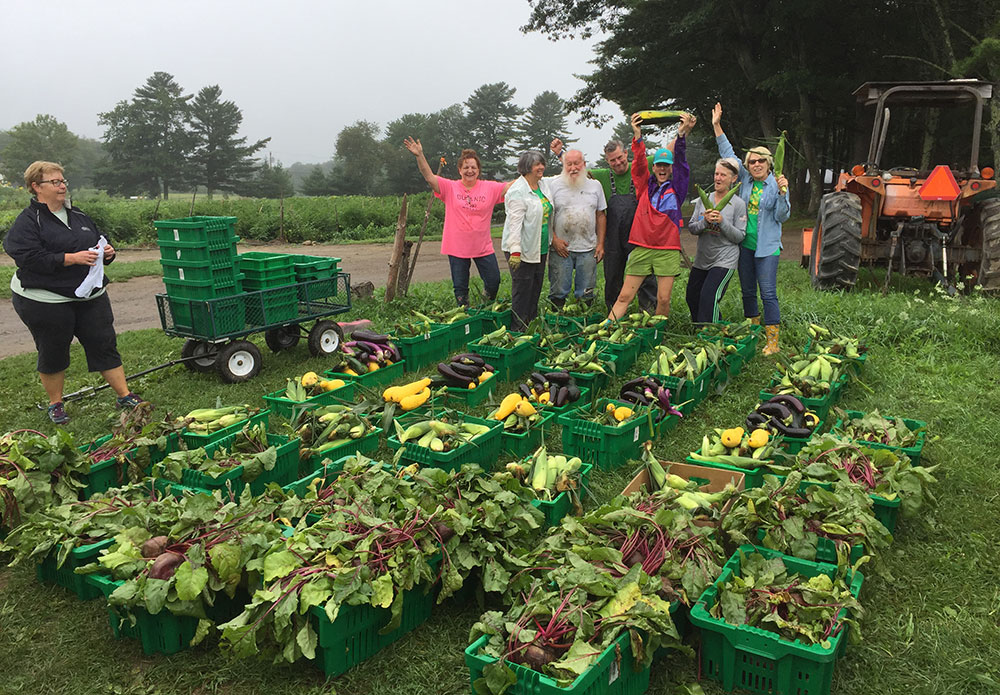How You Can Help
- Home Gardeners
- Farmers
- Corporations, Businesses, Schools, and Civic Groups
- Master Gardener Volunteers
Home Gardeners
Growing extra food in your own garden, or in a community garden, can be a very fun and convenient way to contribute to your community. Here are some tips for success:
- Connect with your local recipient organization to make sure they can accept fresh vegetables and determine the best days/times to drop off donations. If you don’t know where to donate, your local Maine Harvest for Hunger coordinator can help you find a place to donate. Contact your local UMaine Extension office or email extension.harvestforhunger@maine.edu.
- Harvest ripe, undamaged produce*, clean it, and estimate the weight.
- Donate to a local agency OR a friend in need.
- Contact with a local Maine Harvest for Hunger coordinator to find a community garden to help.
- Report your donation.
*We suggest growing any of the following crops:
- Long-term keepers: beets, cabbage, carrots, winter squash (no Hubbard, please)
- Short-term keepers: tomatoes, cucumbers, summer squash, lettuce, broccoli, beans
Farmers
Farmers can support gleaning activities either in the field or at a farmer’s market. Contact your local Extension office to find out how you can help.
 Jay Robinson
Jay Robinson
Sweet Land Farm, Starks, Maine
Why he participates in Maine Harvest for Hunger: “I grew up in the 60’s in Coastal Maine when work was for family and community. Giving was not seen as charity, but simply because we knew what each other could use, as we were all in it together. That’s how I still feel about it, even as our circle of community grows wider.”
Jay raises winter squash for Good Shepard Food Bank, which is then distributed to food pantries across the state.
Video: How farmers’ markets can donate food to Maine Harvest for Hunger (YouTube)
Corporations, Businesses, Schools, and Civic Groups
Businesses, schools, and civic groups can participate in gleaning and grow food in gardens on-site or at a community garden. Working together to support the community is a wonderful way to build your team and strengthen bonds among your group. For more information about how your group can get involved, contact your local Extension office.
Video: Maine Harvest for Hunger: IDEXX Adopt a Garden Program (YouTube)
Master Gardener Volunteers
UMaine Extension’s Master Gardener Volunteers program provides participants with at least 40 hours of in-depth training in the art and science of horticulture. Trainees receive current, research-based information from UMaine Extension educators and industry experts. In return, trained Master Gardeners volunteer their time and expertise in many ways for community programs and activities, including Maine Harvest for Hunger.
“I’ve enjoyed gleaning, delivering and growing for local food pantries and shelters. I’ve picked apples at Spiller’s Farm, potatoes from Zach’s Farm and Riverside Farm and I’ve watched my colleagues do the same.” — Maine Master Gardener Volunteer

